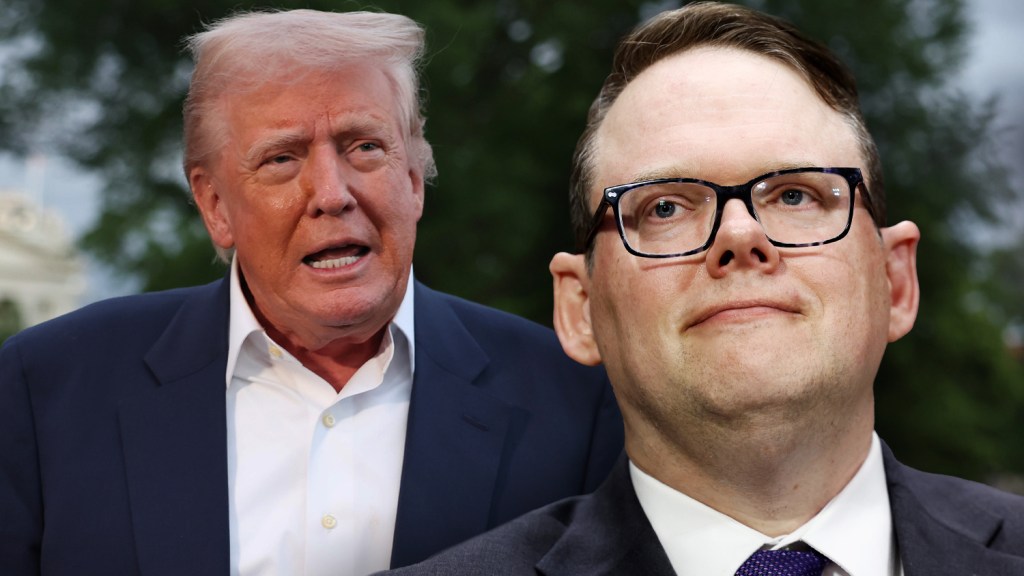SAG-AFTRA‘s Duncan Crabtree-Ireland is the first of the Hollywood labor leaders to speak out after President Donald Trump announced his plan to impose 100% tariffs on films made outside the U.S. — and he appears to be keeping an open mind on the matter.
“SAG-AFTRA supports efforts to increase movie, television and streaming production in the United States,” the National Executive Director of the actors’ union said in a statement Monday morning. “We will continue to advocate for policies that strengthen our competitive position, accelerate economic growth and create good middle class jobs for American workers.” He added: “We look forward to learning more about the specifics of the plan announced by the President and to advancing a dialogue to achieve our common goals.”
Trump’s announcement on Sunday evening rattled the industry, as studios have come to depend on shooting pricey tentpoles in other countries including Canada, Australia and the UK. However, the White House was quick to walk back the bold assertion by Monday morning, claiming that “no final decisions” have been made on whether to impose foreign film tariffs.
The President told reporters Monday that he was planning to set meetings with entertainment industry representatives to discuss the matter, assuring: “I’m not looking to hurt the industry. I want to help the industry.”
Trump’s announcement comes as reports began circulating around Tinseltown that Jon Voight, one of the President’s appointed “special ambassadors” to Hollywood, had been taking meetings around town with the intention of devising a plan to present to the President with a plan for boosting domestic production. Sources with knowledge of these conversations tell Deadline that they focused primarily on the idea of a federal tax credit that could work in tandem with state-led funding initiatives to compete with the enticing financial incentives offered abroad.
Production workers and union representatives have been sounding the alarm on runaway production for some time. The issue has worsened in recent years as the industry experienced a global production contraction, which was greatly accelerated by years of shutdowns related to the coronavirus pandemic and 2023’s dual strikes.
Currently, California lawmakers are weighing proposed changes to the state’s own Film & TV Tax Credit Program to up the cap from $330M annually to $750M and expand eligibility to include a broader range of projects, among other things. While Gov. Gavin Newsom has made the production exodus issue a top priority, he was also one of the first to openly oppose Trump’s tariff proposal.
Newsom’s team tells Deadline that Trump “has no authority to impose tariffs” on the film and television industry, setting the stage for a bit of a showdown over how to truly save Hollywood.
Details on Trump’s tariff proposal are murky, and there are many questions left unanswered, including what Trump actually means by a 100% tariff on movies produced in other nations and whether it will include television. What does seem clear is that, if Trump moves forward with the proposal, it’s likely to be challenged in court.
The post SAG-AFTRA’s Duncan Crabtree-Ireland Says Union Open To “Advancing A Dialogue” With White House On U.S. Film Production After Trump Tariff Proposal appeared first on Deadline.




